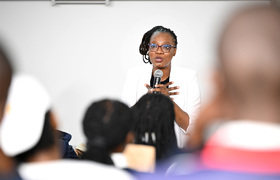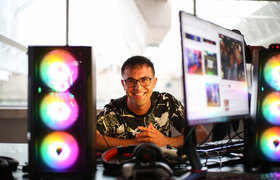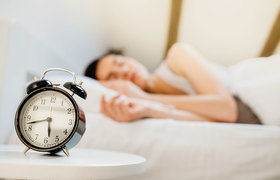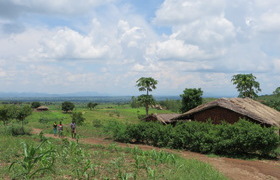Addressing South Africa’s silent sleep crisis
28 August 2025 | Story Myolisi Gophe. Photos Lerato Maduna. Read time 5 min.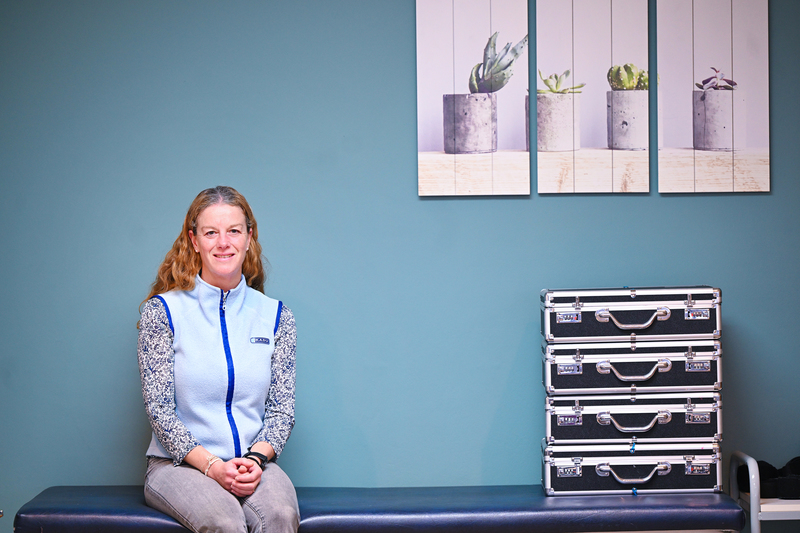
For Associate Professor Dale Rae, sleep is not a luxury. It’s a biological necessity as critical as food and water – yet in South Africa, sleep health remains a neglected frontier.
Associate Professor Rae, who lectures in the Division of Physiological Sciences at the University of Cape Town’s (UCT) Faculty of Health Sciences (FHS), has spent more than a decade researching circadian rhythms and sleep. What began as a side interest during her PhD in exercise science has since evolved into a groundbreaking career – and the creation of Sleep Science, a UCT spin-off company dedicated to improving public understanding and treatment of sleep problems.
“In South Africa, we don’t even have national data on the prevalence of sleep disorders,” Rae explained. “It’s an area of health that has been unrecognised until recently, despite its massive impact on mental, physical, and cognitive well-being.”
From lab to life
The idea for Sleep Science grew out of Rae’s realisation that poor sleep is far more widespread than the research community alone could address. Together with colleagues, she began offering sleep assessments and educational talks to schools, companies, and sports teams.
What started as a rudimentary service soon attracted interest from UCT’s Research Contracts and Innovation Office, leading to seed funding and business development support. Three years ago, Sleep Science was formally registered as a private company, with Rae as the primary shareholder and UCT as a significant partner.
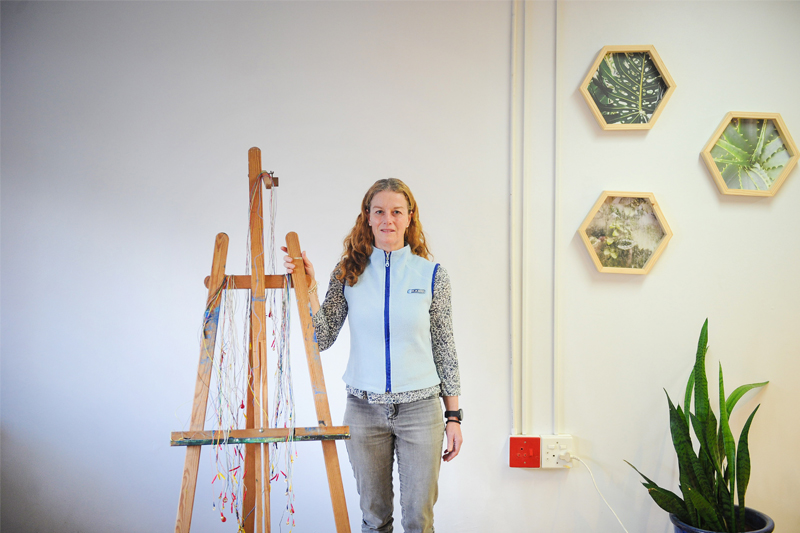
Today, the company offers tailored sleep assessments for individuals, corporate wellness screening tools, and public education programmes.
“Just like companies assess employees for risks like obesity or mental health, our tool helps them identify people at risk for poor sleep,” Rae said. “That means we can intervene early, reduce fatigue-related accidents, and even improve workplace productivity.”
Rae’s research also highlights important differences between men and women. Globally, women are more prone to insomnia – the most common sleep disorder – while men are more likely to suffer from obstructive sleep apnoea.
This nuance, she argued, is one reason sleep should be integrated into mainstream health and wellness initiatives. “It’s frustrating that Sleep Science has not yet been fully incorporated into UCT’s own wellness provision,” Rae admitted. “We’ve had conversations, and people agree it’s important, but nothing ever seems to move forward. But we will continue getting into those discussions.”
Sleep and social inequality
Beyond corporate boardrooms and university campuses, Rae’s work shines a stark light on how poverty and unsafe environments rob people of healthy rest.
Her team’s studies in Khayelitsha and rural Mpumalanga revealed that many South Africans in low-income communities are “long sleepers” – not because they are well rested, but because poor sleep quality forces them to spend more time in bed.
“Fear around personal safety and the stresses of poverty make it impossible to access restorative sleep,” Rae explained. “We call this sleep health inequity. Sleep is a basic human right, but access to it is not equal.”
“The short of it is this: if you don’t sleep, you die. It’s time we treat sleep with the seriousness it deserves.”
The consequences are severe: higher rates of depression and anxiety; increased risk of hypertension and cardiovascular disease; and daytime fatigue that undermines learning, employment, and quality of life.
“You can do all the deep breathing exercises in the world,” Rae said, “but if you’re sleeping in an environment where you don’t feel safe, you’ll never be able to let your guard down.”
Building a future for sleep science
Looking ahead, Rae hopes to scale Sleep Science’s impact by strengthening its corporate wellness footprint while also training the next generation of researchers. Many of her students have already transitioned into roles within the company, gaining practical experience that complements their academic studies in physiology.
In the longer term, Rae and a UCT colleague in psychology are developing plans for a dedicated sleep institute – a one-stop hub combining cutting-edge research, clinical services, education, and public engagement.
“Think of it as Sleep Science on steroids,” Rae said with a smile. “A place where we can assess, treat, educate, and research under one roof. That’s our vision for the next two to three years.”
Until then, she continues to push for sleep to be recognised as the cornerstone of health that it is. “The short of it is this: if you don’t sleep, you die,” she said. “It’s time we treat sleep with the seriousness it deserves.”
For more information or to book an assessment, contact Sleep Science.
 This work is licensed under a Creative Commons Attribution-NoDerivatives 4.0 International License.
This work is licensed under a Creative Commons Attribution-NoDerivatives 4.0 International License.
Please view the republishing articles page for more information.







